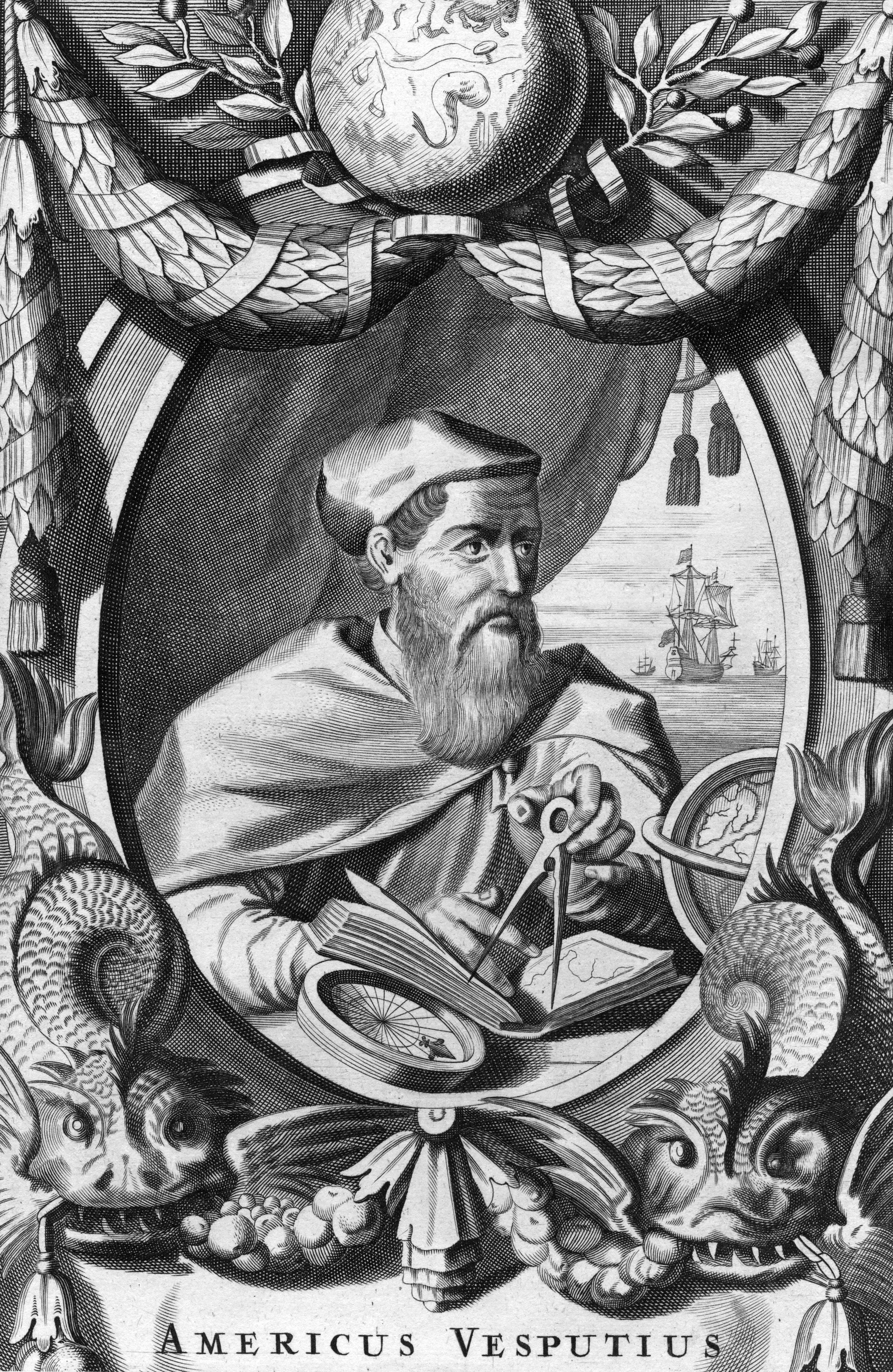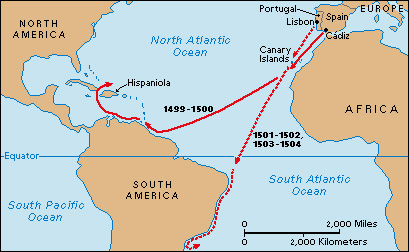Vespucci, Amerigo, << veh SPOO chee, uh MEHR uh `goh` >> (1451?-1512), was an Italian-born explorer for whom America was named. He claimed to have explored the American mainland in 1497 and thought he had reached a “New World.” Christopher Columbus had sailed to this area in 1492. But Columbus thought he had arrived at islands off Asia and may never have realized his error.

Martin Waldseemuller, a German mapmaker, believed that Vespucci was the first European to reach the New World. In 1507, he suggested that the land be named America. Soon, this name was used throughout Europe. Today, however, many scholars doubt Vespucci’s importance in the exploration of America.
Life and expeditions.
Vespucci was born in Florence, probably on March 9, 1451. He studied navigation as a youth. Vespucci spent his early career in the banking firm of Lorenzo di Pier Francesco de’ Medici of Florence. In 1491, he moved to Seville, Spain. There, he became connected with a company that equipped ships for long trips.
Vespucci later claimed that he made four voyages to the New World. After what he called his first voyage, in 1497, he said he had sighted a vast continent (South America). In 1499 and 1500, Vespucci took part in an expedition led by the Spanish explorer Alonso de Ojeda. During this voyage, Vespucci’s ship traveled along the coast of Venezuela. In 1501 and 1502, and again in 1503 and 1504, Vespucci sailed with the fleet of Gonçalo Coelho, a Portuguese captain. Both of these expeditions explored the southern coast of Brazil.

Vespucci’s reputation came largely from a letter he wrote to Lorenzo di Pier Francesco de’ Medici in 1502 or 1503. In it, Vespucci told of his discovery of a new continent and vividly described it. The letter was published in 1503, and again in 1504, under the title of Mundus Novus (New World). It became extremely popular and later was published in several editions and translations. The letter established Vespucci as a famous explorer. He published another letter about his travels in 1505.
Vespucci became a Spanish citizen in 1505. He went to work for a government agency that regulated commerce with the New World. He served as the agency’s chief navigator from 1508 until he died on Feb. 22, 1512.
The controversy.
Soon after Vespucci died, scholars began to question his claims of discovery. They found little evidence to support his own reports of making a voyage in 1497. Vespucci also claimed to have led all the expeditions. But he actually had been only a navigator or commander of a single ship. In time, Christopher Columbus became known as the European discoverer of the New World. But it was Vespucci who publicized its discovery.
See also Columbus, Christopher .
